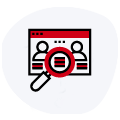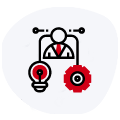Access to training is a right. The employer must provide employees with all the tools they need to perform their tasks. It must also ensure that it provides and maintain their ability to do their work, taking into account changes occurring in jobs, technologies and organizations. The objective is to give all employees the means to exercise their profession as well as possible so that they contribute to the overall performance of the company. However, as we speak, training processes are mostly managed in an informal manner. The development of the training plan is usually complex and paper files often become a real administrative and organizational nightmare.
Master every step of your training process
Plan different training methods and actions
Build training course choices in line with your strategy
Effectively manage your essential and complementary trainings
Master the training systems and their financing methods
Effectively manage your training budget
Effectively develop your skill development plan
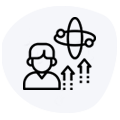
Developping the potential of every employee
- Continuous and collaborative learning process
- Increasing opportunities for learning
- An individual and personalized training course
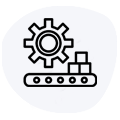
Improving employee productivity
- Training courses in line with the needs of the employee and the company
- Automatic reporting/indexing of training needs entered in the Skill component
- Employees adapting to the changes of their roles

Optimizing the policies pertaining to training
- Optimizing budgets and funding
- Complying with current regulations
Managing company training systems

EMPLOYEE
- Employees have free access to training requests
- Skill development in line with career plans
- Acquisition of qualification units through training and validation of prior learning
- Adaptation to a role linked to the technological development of the role

MANAGER
- Identification of employees involved in training courses
- Assignment of employees to training and reclassification courses
- Manage training plans in line with the corporate strategy
- Improved employee potential and team performance

SERVICE RH
- Centralizing training requests
- File management and planning of training plana
- Cost optimization and training budget management
- Training evaluation and satisfaction analysis
FUNCTIONALITIES
-
Creation of skill development plans
-
Creation of training plans resulting from the FMES (Forecast Management of Employment and Skills)
-
Management of training programs
-
Management of AFEST work-based training
-
Management and tracking of mandatory training
-
Managing qualifications and updates
-
Validation of prior learning
-
Managing the training component/program
-
Managing the repository of trainers
-
Managing planned, committed and completed budget using a simulator
-
Management of multi-financing and reimbursements from organizations
-
Training evaluation
-
Managing leaves and absences
-
Planning logistics
-
Taking into account pay and social security contributions of the trainee
-
Real-time data analysis
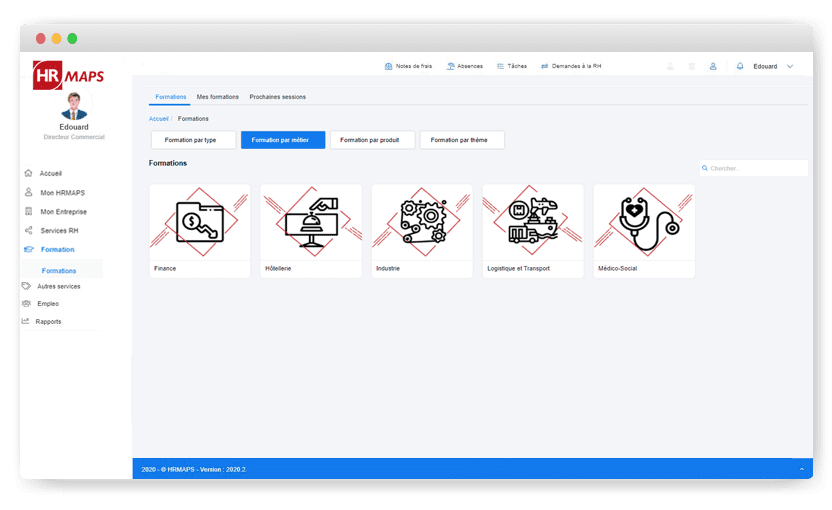
Intuitive, comprehensive and modular HR software
Discover the potential of HRIS HRMAPS
Discover modules designed to talent management
Among our references











































































